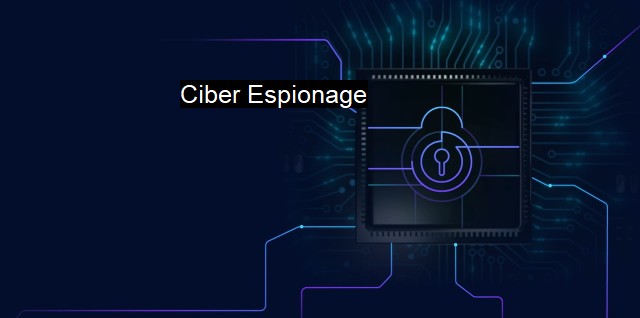What is Ciber Espionage?
Cyber Espionage: A Growing Threat to Cybersecurity in an Increasingly Digitized World
Cyber Espionage is an escalating threat within the rapidly growing field of cybersecurity. As the name suggests, Cyber Espionage is a form of cyber warfare in which covert methods are employed to infiltrate a competitors network system to assist achieve an economical, political or military advantage. In cyber espionage, highly trained individuals or entities, often referred to as "hackers" or "cyber spies," use advanced tools to break into a system, aiming to gather information without the user's knowledge or consent.Different scenarios of cyber espionage involve the breach of government and military systems to acquire sensitive data or infiltrate corporate networks for trade secrets or intellectual property. These cyber attacks could prove catastrophic, resulting either in compromise of state security or potential heavy losses for businesses. Some common ways these criminals use to infiltrate systems include malicious software (malware), pernicious emails (phishing), brute force attacks, or exploiting system vulnerabilities.
An inherent issue facing the prevention or detection of cyber espionage is its surreptitious nature. The perpetrator's aim is to remain undetected while infiltrating a network or system for an extended period. In many cases, the victim only realizes a breach long after it has occurred, and identifying the offenders could be an insurmountable hurdle.
As every sector, including financial institutions, transportation systems, power grids, health sectors, military, have become digital, the scope of cyber espionage has expanded dramatically. Accordingly, governments and organizations have given redoubled attention to cybersecurity, formulating comprehensive strategies and regulations to curb cyber espionage.
One primary method of counteracting cyber espionage is through cybersecurity systems, specifically, antiviruses and firewalls. Antivirus software is a cornerstone in the fight against cyber espionage as it offers protection against a variety of online threats, including viruses, malware, and ransomware. Employing heuristic detection, antivirus software anticipates future malware threats, beyond established virus signatures. Firewalls, on the other hand, monitor and control data flow in a system or network, establishing strong deterrents to unauthorized access.
The discerning aspect of cybersecurity systems against cyber espionage is their ability to combat ‘zero-day threats’. ‘Zero-day threats’ is a term referencing entirely novel threats surfacing for the first time, making it hard to identify or neutralize promptly due to lack of pre-existing information. Developing softwares that can predict and combat such unknown threats is critical in the fight against cyber espionage.
As corporations and governments recognize the potential devastation stemming from cyber espionage, investment in cybersecurity solutions like antivirus systems is ever-growing. But it is essential to be clear that behind each technological advancement to combat cyber threats, rests human beings whose vigilance forms the first, most effective form of defense.
Cyber literacy plays a critical role in combating cyber espionage. Educating users about secure behaviors to be exercised while online such as using strong, unique passwords, validate source prior to opening emails, not sharing confidential information, could go a long way in creating a more secure cyber world.
Cyber espionage is a threatening reality in the digital world that leverages sophisticated techniques to breach security for gathering critical or sensitive information. This paints a worrying picture of the extents to which cyber spies will go to acquire the information they seek. Hence, considerable importance is laid on cybersecurity and measures like anti-virus systems. The collective efforts of everyone, from governments, companies, to individuals, remain the foundation of a comprehensive cybersecurity system.

Ciber Espionage FAQs
What is cyber espionage?
Cyber espionage is a type of cyber attack where hackers infiltrate a network or computer system in order to steal sensitive or confidential information.How can antivirus software help prevent cyber espionage?
Antivirus software can help prevent cyber espionage by detecting and blocking malicious software (malware) that cyber attackers use to gain access to computer systems and steal information.What are some common cyber espionage tactics that hackers use?
Some common cyber espionage tactics that hackers use include phishing emails, social engineering, and malware attacks that exploit vulnerabilities in software or hardware.What can individuals and organizations do to protect themselves against cyber espionage?
To protect against cyber espionage, individuals and organizations should implement strong security measures such as using firewalls, regularly updating software, training employees on cyber security best practices, and using antivirus software. They should also be cautious about clicking on links or downloading attachments from unknown sources, and monitor their networks and devices for suspicious activity.| | A | | | B | | | C | | | D | | | E | | | F | | | G | | | H | | | I | | | J | | | K | | | L | | | M | |
| | N | | | O | | | P | | | Q | | | R | | | S | | | T | | | U | | | V | | | W | | | X | | | Y | | | Z | |
| | 1 | | | 2 | | | 3 | | | 4 | | | 7 | | | 8 | | |||||||